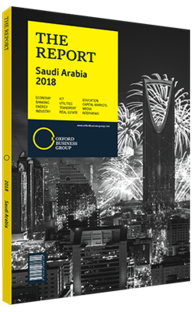Majed Najm, CEO, HSBC Saudi Arabia: Interview

Interview: Majed Najm
Why is Saudi Arabia an attractive opportunity for local and international investors?
MAJED NAJM: Saudi Arabia is not only the leading oil producer but also a G20 economy of enormous size and even greater potential. It is the biggest market in the MENA region, and half the population is under the age of 25. These dynamics lead to strong demand for consumer goods, services, housing and entertainment. Geographically, the country has a unique strategic location between Asia, Europe and Africa and has embarked on a bold reform programme to realise its potential. After being reliant on oil for so long, we have now recognised the need to rapidly open up, reform and diversify our economy. The government is boosting the role of the private sector, liberalising the domestic economy, opening up the stock market – which is already the largest in the region – to qualified foreign investors (QFIs), investing in infrastructure, privatising state-owned firms, enacting labour market reforms and encouraging foreign direct investment and QFI investment to make long-term gains in productivity, investment and trade.
What measures are being taken to attract foreign institutional investors into the capital markets?
NAJM: Foreign institutional investors will help develop capital markets by increasing depth and participation, market sophistication and stability, price discovery and, therefore, efficiency. Infrastructure improvements, such as the recent move to T+2 settlement, and the introduction of both securities lending and covered short selling, are key to this development. Companies are also becoming more transparent, with improved financial disclosure and corporate governance. There is a push to adopt higher standards for investor relations and for third-party, sell-side research coverage of listed corporates. These measures make listed Saudi companies more competitive with their international peers.
Various other initiatives have been implemented to attract foreign investors, such as the obligation to comply with International Financial Reporting Standards; the improvement of QFI regulations to meet with international best practices; the creation of Nomu, the parallel securities market; the development of debt capital markets; the extension of trading hours; and the plan to list government debt on the stock exchange.
How would you describe the global appetite for sukuk (Islamic bonds) and other instruments?
NAJM: Global appetite is strong and interest from foreign investors is high. A good example is the Kingdom’s record $17.5bn debut international bond in October 2016, followed by its debut $9bn international sukuk in April 2017 and a $12.5bn international bond in September 2017. As joint global coordinator on all three issuances, HSBC was able to match investors’ appetite and issuers’ objectives, and lay the groundwork for promoting the market for Saudi credit. In addition, HSBC structured and led as the sole book runner in the first accelerated book build in Saudi Arabia in September 2017, with the sale of 16m shares (2%) in Almarai by Savola Group. The transaction catalysed significant inflows from international institutional investors, generated strong local demand, and was well received by institutional investors in Europe and North America.
What do you predict the effects of the MSCI and FTSE index inclusion will be?
NAJM: The inclusion in the MSCI and FTSE indices will put Saudi Arabia on international investors’ radars, which could lead to significant active and passive capital inflows. This offers many new opportunities to international investors. International equity investors have been allowed to participate in initial public offerings since January 2017, which is also likely to attract foreign capital. The QFI programme gave institutional investors direct access for the first time. Once Saudi Arabia is included in the MSCI and FTSE Emerging Market indices in the coming years, we expect this number to increase.
You have reached the limit of premium articles you can view for free.
Choose from the options below to purchase print or digital editions of our Reports. You can also purchase a website subscription giving you unlimited access to all of our Reports online for 12 months.
If you have already purchased this Report or have a website subscription, please login to continue.

